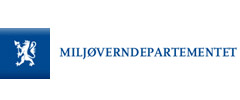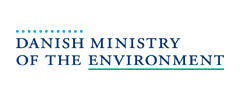"Psychosocial factors on household level influence user acceptance of Ecosan Toilets"
Master thesis evaluates WECF Ecosan programme
24.10.2014 |WECF

While diverse factors are impacting the acceptability of UDDTs, psychosocial determinants like the financial contribution or the working time of the owner, are among the most influential.
Within the ELA programme WECF with partners demonstrated and supplied during the years 2008-2010 over 800 households in 10 countries of the Eastern European, Caucasus and Central Asian (EECCA) region with UDDTs, in order to increase sanitary conditions and to eventually eliminate poverty in rural communities.
Urine diverting dry toilets
The “Urine diverting dry” system, implemented at the household level, consists of a diverting toilet, dehydration vaults and urine tanks for storage/treatment. The collected urine and faeces can be used as agricultural fertilizer or compost. During monitoring of the program’s impact, local partner organizations collected information on output and outcome indicators on the UDDTs sustainability. Further, more than 60 beneficiaries were interviewed using a detailed questionnaire.
In a second impact evaluation phase, 2012, around 120 UDDTs were re-monitored by the partner organizations. While several activities of the ELA-programme have been evaluated already, monitoring results and questionnaires were neglected so far. Analyses of the data material would allow drawing comprehensive conclusions about the strengths and shortcomings of the ELA-programme and giving practical recommendations for future ecosan projects. Findings might also contribute to the development of ecosan-specific theoretical models about behavioural change.
Methodology
For each household an “Acceptance Score” was generated prior to this thesis, which is basically a quantitative reflection of the user acceptance (ranging from 1 - least accepted to 11 - best accepted). It is based on 9 indicators, including for instance smell appearance, cleanliness of the toilet or user satisfaction with the fertilizing effects of urine/faeces. In the frame of this thesis further data assessment took place to detect insufficiencies. In order to determine the effects of different factors (e.g. country or number of UDDTs per village) on the user acceptance score, methods from descriptive and inferential statistics were applied. Acceptance influencing factors were organised with the help of the IBM-WASH (compare figure 1). The IBM-WASH (Integrated Behavioural Model for Water, Sanitation, and Hygiene) aims to sort behavioural determinants. It is multi-levelled and -dimensioned introducing a contextual, technological and psychosocial dimension with determinants operating on following five levels: Societal, Community, Household, Individual and Habitual.

Figure 1: Analysed behavioural determinants organised with the IBM-WASH
Key findings
The overall acceptance in 2010 proved to be high: more than 90% of users had at least an acceptance score of 6 and the average value was 8.4. With a higher financial participation of the owner and higher material construction costs the user acceptance increased significantly. Acceptance scores of UDDTs implemented by different partner organisations varied significantly, with average values ranging from 4.6 to 10.4. In contrast, the gender ratio respective the amount of UDDTs per village had no effect on the toilets’ acceptability. Regarding the location of the toilet, a trend is visible, even though differences are not significant: UDDTs attached to the house are best, outdoor toilets intermediately and indoor toilets least accepted. In several cases outcomes of the monitoring data analysis contradicted those from the questionnaire analysis, indicating the need for further research regarding these issues. Results from the re-evaluation phase in 2012 indicate an increased acceptance score compared to 2010, mainly because beneficiaries started to appreciate the fertilizing effects of urine.
Conclusion/Recommendations
It was found that psychosocial determinants on the household level have a rather strong impact on the user acceptance. In contrast, the influential power of contextual factors, like the percentage of women in the family, is rather low. On the individual level technological determinants were significant for user satisfaction, but results should be treated with care, as many of these factors were correlated. Effects of factors like “Region” or “Organization” on the user acceptance are difficult to interpret, because they comprise a complex network of different determinants. Monitoring the results of 2012 should be treated as estimates, as data were not collected in the frame of the ELA-programme. Overall results are another indication for the importance of involving beneficiaries at as many project stages as possible, in order to increase their sense of ownership. However, there is some space for improvement, especially regarding the evaluation phase of the ELA-programme. Monitoring and data processing deficiencies can be reduced by further capacity building of ELA-partners on methodology. Thereby, factor correlations, which make it difficult to develop mechanisms explaining the link between effect and cause, would occur less often. Further, the project’s impact evaluation should also consider the number of UDDT replications, as replication is regarded as a major acceptance indicator. Monitoring questions should at best be formulated in an unambiguously polar way.
Related News
Calling for periods free from plastic & hazardous chemicals
Letter to Frédérique Ries, MEP, European Parliament on behalf of the #BreakFreeFromPlastics movement
04.09.2018
WECF participated at WASH symposium in Uganda
From June 20th-23rd, a WASH symposium was held in Kampala, Uganda. WECF participated in cooperation with our local partner organization ARUWE and we presented our water, sanitation and energy projects in Uganda.
23.06.2016
We've made it - overwhelming success of our crowdfunding campaign!
In the last 4 weeks we run a crowdfunding campaign to collect 4.000€ to finance 15 Biogas Toilets for deprived families in Uganda. Thanks to your great support we can now build even more!
22.06.2016
Time for EU to walk the talk on 2030 Sustainable Development Agenda
As part of SDG Watch Europe WECF calls for a consequent implementation of the Sustainable Development Goals by the European Union.
06.06.2016
Biogas Toilets for Uganda – WECF needs your support!
WECF is running a crowdfunding campaign in order to finance 15 biogas toilets for deprived families in Uganda - please get involved!
26.05.2016 | WECF



































